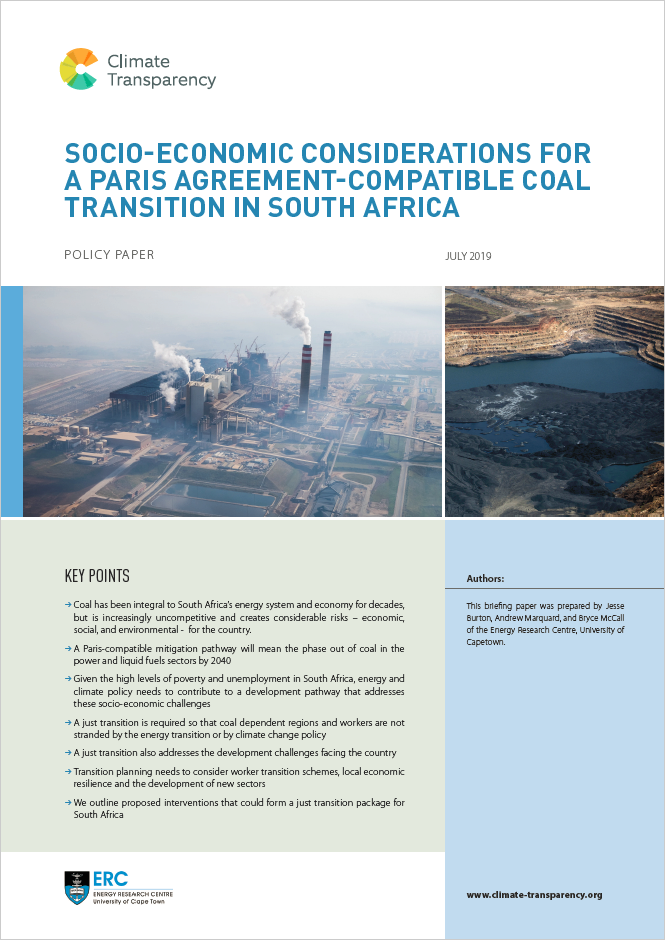Coal has been integral to South Africa’s energy system and economy for decades, but is increasingly uncompetitive and creates considerable risks – economic, social, and environmental – for the country. A Paris-compatible mitigation pathway will mean the phase out of coal in the power and liquid fuels sectors by 2040. Given the high levels of poverty and unemployment in South Africa, energy and climate policy needs to contribute to a development pathway that addresses these socio-economic challenges. A just transition is required so that coal dependent regions and workers are not stranded by the energy transition or by climate change policy. A just transition also addresses the development challenges facing the country. Transition planning needs to consider worker transition. This paper outlines proposed interventions that could form a just transition package for South Africa.
The paper has been produced as part of the efforts of Climate Transparency, an international partnership of 14 research organisations and NGOs comparing G20 climate actions, and is part of a series of policy papers on the coal phase-out produced by ERC (South Africa), IESR (Indonesia) and TERI (India).


